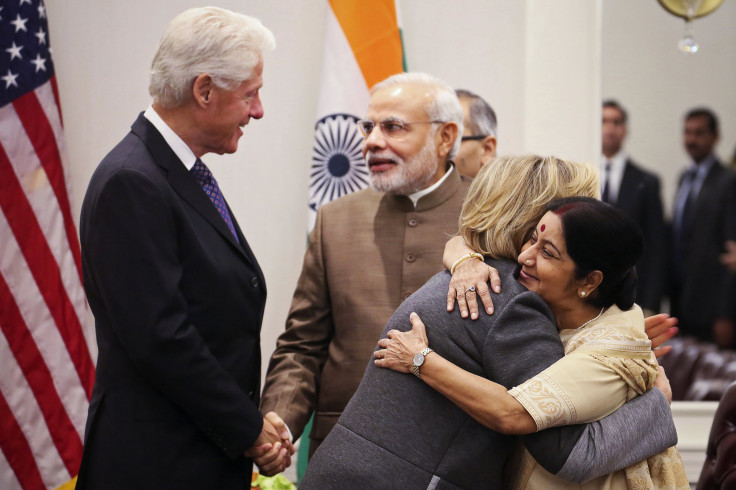Election 2016: Hillary Clinton Talks Economics, Women's Issues

WASHINGTON -- Hillary Clinton spent the last several months sharing the stage, touring the country to campaign for fellow Democrats facing tough midterm campaigns. But when she took the stage at an economic event Thursday at Georgetown University, she sounded like she was putting together the outline of a stump speech of her own.
Clinton skipped over the usual political attack lines. She's widely expected to run for president in 2016 and to make economic inequality a central tenet of her message. But she never used the words "income inequality," instead zeroing in on her experience, her work helping women around the globe, and the need to improve economic conditions here at home.
“This issue is about how we create jobs in the global economy today, men and women, how we really help prepare young people for the jobs that are going to be available through education and training,” she said. “This is going to be one of the most important decisions.”
Clinton has used her time on the campaign trail to focus on income inequality, a common theme for Democrats across the country. At the Thursday forum -- titled “The Power of Women’s Economic Participation” -- she used her experiences as first lady, secretary of state, part of the nonprofit Clinton Global Initiative and as a grandmother to illustrate her points.
She began by discussing a trip she made to South Africa in the 1990s when she was first lady, saying that at the time economists failed to recognize the economic contributions of women. Highlighting her global connections, she name-checked Indian Prime Minster Narendra Modi and Japanese Prime Minister Shinzo Abe. Clinton discussed the need for basic sanitation in India to improve economic conditions. She talked about Japan's efforts to increase access to child and elder care so more women could hold full-time jobs.
In the end, Clinton brought it back to the U.S., stopping short of criticizing President Barack Obama for the pace of the economic recovery, but still saying more is needed.
“We’ve made more progress comparatively in the United States, but we still have millions of Americans who have not recovered their economy, who do not have job security, who are long-term unemployed. So why would we not look at any solution that could work?” she said. “It’s very clear that the more women we can get to participate fully and get paid equal pay for equal work, the faster our economy will recover and economies around the world, likewise.”
Clinton also spoke about her new granddaughter, Charlotte. While waiting to see the baby in the hospital, she said, she was approached by a nurse who thanked her for fighting for paid leave.
“With this new grandchild of ours, we spend a lot of time looking at her and a lot of time thinking about what we want to do for her,” Clinton said. “We also worry about the world she will inherit as an adult. What will be the opportunity available to her and to others in 20 or 25 years when they enter adulthood?”
© Copyright IBTimes 2024. All rights reserved.





















